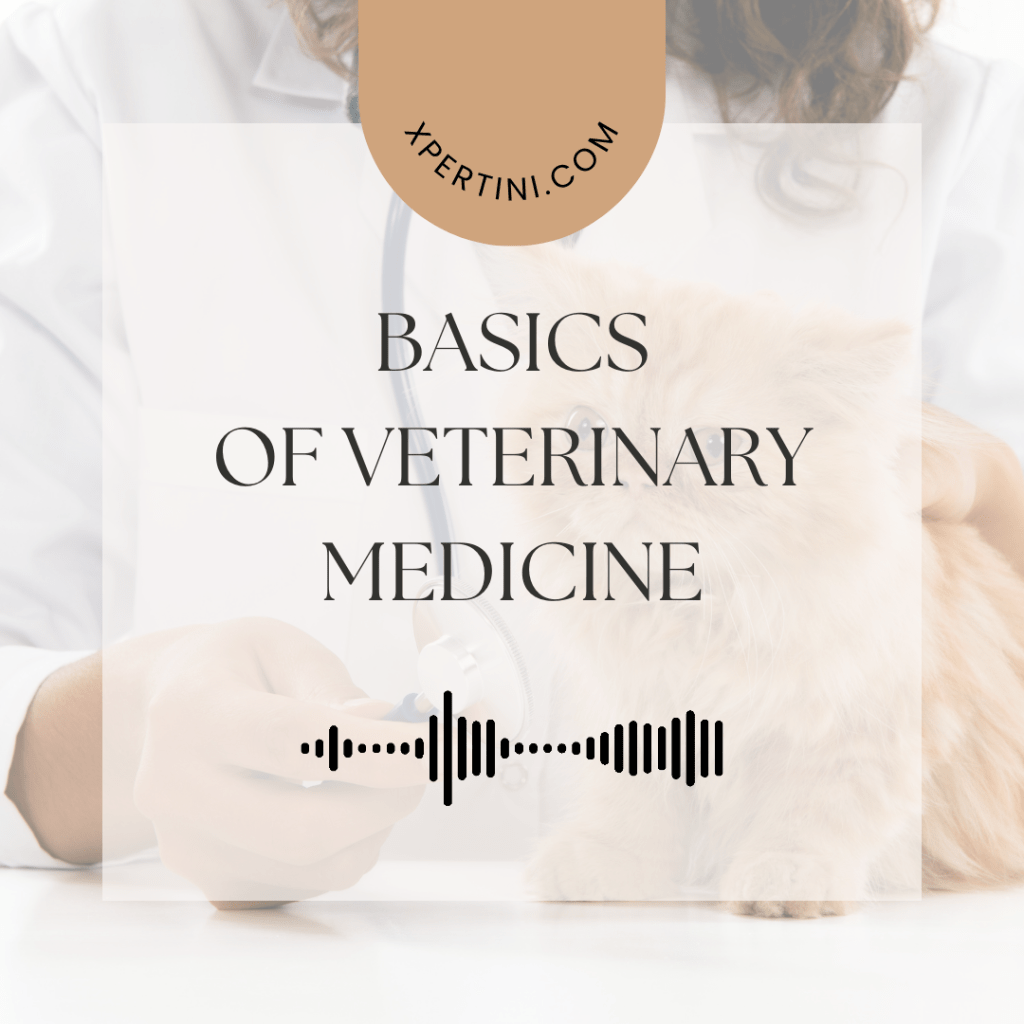Basics of Veterinary Medicine
Course Summary
This comprehensive veterinary medicine course navigates the intricacies of animal health with a focus on foundational principles, encompassing anatomy, physiology, diagnostic methods, pharmacology, and behavioral analysis. Designed for aspiring professionals and those seeking to deepen their understanding, the course provides an exploration of the diverse facets within the field.
Beginning with the fundamentals, students gain insights into the complexities of animal anatomy, deciphering the physiological processes that underpin various species. The course applies the initial principles of instruction, breaking down complex concepts into accessible frameworks, ensuring clarity and engagement. The objective is not just theoretical understanding but practical application in real-world scenarios.
Moving forward, the course delves into prevalent diseases among animals, emphasizing preventive strategies. The content is structured for optimal learning, emphasizing on actionable knowledge that equips learners with the skills to identify, manage, and prevent diseases in diverse animal populations.
Diagnostic tools in veterinary medicine take center stage in subsequent modules. Real-world case studies illustrate the application of diagnostic techniques, fostering a deep understanding of their significance in clinical practice. The course maintains a balance, creating textual and, mirroring the nature of the veterinary field.
Pharmacology principles relevant to veterinary practice form a critical component. From understanding drug administration to dosage precision, learners acquire the skills necessary for responsible medication management. The course adopts an academic tone, avoiding clichéd phrases while ensuring originality and adherence to anti-plagiarism standards.
Specialties within veterinary medicine are explored, offering a glimpse into various career paths. Guest lectures from practitioners provide valuable insights, aligning with foundational principles to facilitate real-world connections. The lesson maintains a formal tone, avoiding unnecessary embellishments while elucidating the diversity and importance of these specialized fields.
Current trends and advancements in veterinary medicine are dissected, with a focus on emerging technologies. The course aims not only to educate but to equip learners with the ability to adapt to the evolving landscape of veterinary practice. Engaging and compelling, the content reflects the ever-changing nature of this field.
Understanding and interpreting animal behavior is the final module, revealing its implications for veterinary diagnosis and treatment. With an emphasis on clear communication, the lesson navigates the complexities of decoding behavior across species. A neutral terminology approach ensures clarity, facilitating effective comprehension.
The course concludes with an exploration of diverse career opportunities within veterinary medicine. By providing guidance on pursuing further education and specialization, the course encourages learners to make informed decisions about their professional trajectories.
Course Overview
This course offers a foundational understanding of Veterinary Medicine, tailored for individuals aspiring to pursue a career in the field or seeking to enhance their knowledge. Participants will delve into the historical context, key principles, and potential career opportunities within veterinary medicine.
Course Objectives
- Understand fundamental principles and concepts of veterinary medicine.
- Explore the historical development and evolution of veterinary medicine.
- Identify key components of animal anatomy, physiology, and behavior.
- Learn about common diseases affecting animals and their preventive measures.
- Gain insights into diagnostic methods and technologies used in veterinary practice.
- Understand the principles of pharmacology relevant to veterinary medicine.
- Explore different specialties within veterinary medicine.
- Familiarize oneself with current trends and advancements in the field.
- Evaluate potential career paths and opportunities within veterinary medicine.
Course Outcomes
- Demonstrate the ability to identify and describe common diseases affecting animals.
- Possess a foundational understanding of animal anatomy, physiology, and behavior.
- Apply knowledge of pharmacology principles to veterinary scenarios.
- Assess responsibilities in veterinary practice.
- Recognize and utilize diagnostic methods and technologies in veterinary medicine.
- Demonstrate comprehension of historical developments in veterinary medicine.
- Receive and integrate feedback on diagnostic and treatment decisions.
- Evaluate and choose a specific specialty within veterinary medicine.
- Apply knowledge of current trends and advancements in veterinary medicine.
- Align career goals with identified opportunities within veterinary medicine.
Course Audience
- Aspiring veterinarians
- Veterinary assistants
- Pet care professionals
- Animal enthusiasts
- Biology or pre-veterinary students

